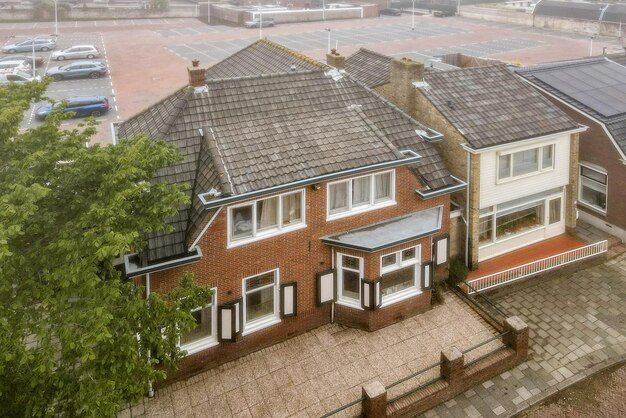How to Choose a Residential Roofing Material with the Longest Lifespan
When choosing the right roof for your home, it’s important to consider the lifespan of the material. You’ll want to choose durable materials that will last for as long as possible to minimize the cost of maintenance and replacement.
The lifespan of your roof can vary from 20 to 100 years, depending on multiple factors. The most popular types of roofing are asphalt shingles, including 3-tab, architectural and luxury (designed to look like slate tiles).
For top-notch residential contractors, check out this page Certified Roofing Services Portland. They guide you to the ideal roofing materials for your home. Visit now for expert assistance!
Asphalt Shingles
Asphalt shingle roofs are the most common type of roofing in America they are budget-friendly and offer a 20 to 30-year life span when properly maintained.
There are several types of asphalt shingles, including three-tab and dimensional. The latter is more expensive, but the extra layers and thickness create a more dimensional appearance and are more durable. They also include features that help reflect the sun’s rays, saving on energy costs.
Luxury shingles, sometimes called designer or premium shingles, are thicker and more attractive than traditional asphalt shingles. They are more durable, fire-resistant, and energy efficient.
These shingles are a great option for homeowners seeking high-end curb appeal and a long-term return on investment. However, improper installation and issues like poor roof ventilation may void manufacturer warranties. Make sure to hire a professional roofing contractor for the job.
Metal Roofs
Metal roofs can last up to 80 years with proper installation and maintenance they are durable, fire resistant and rot-resistant and provide great energy efficiency as well they can also increase your home’s resale value if you decide to sell in the future.
Choosing the right metal roof style is important for longevity as well as aesthetics. Metal roofing materials come in a variety of colors and styles from corrugated panels that look like they belong on sheds and barns to pre-formed or standing-seam applications. Some are even designed to mimic shingles, tile and shakes.
The thickness of the metal you choose is another deciding factor when it comes to durability. If you live in a climate that experiences severe hail or high winds, it’s a good idea to opt for a thicker gauge such as 26 or 24.
Thinner metals are more likely to experience oil canning, which is a wavy appearance that appears on the steel panels over time.
Stone Roofs
A roof is one of the biggest investments that you’ll make in your home. It’s important to consider the lifespan of different roofing materials when choosing a new one. The longevity of a roofing material is just as important as its cost, especially if you want to get the best ROI on your investment.
There are many roofing options available that offer long lifespans, including slate roofs, clay tiles, and concrete tiles. These types of roofs can withstand a wide range of weather conditions and provide superior protection for your home.
However, they do come at a premium price and may not be suitable for every home. Moreover, they are extremely heavy and can require additional reinforcement in the structure of the roof.
Wood Shingles
Regardless of which roof material you choose, proper roof maintenance is crucial. Regular maintenance includes replacing broken shingles, removing moss and keeping debris off the roof. In addition, homeowners should check their roofs often to make sure they are free of leaks and have a slope that can drain properly.
Wood shingle roofs can last up to 50 years when they are properly maintained. They are a popular choice for Midwestern homes because they can resist the extreme weather conditions that are common in our area.
If you want a roof with an even longer lifespan, you should consider slate tiles. They can last up to 100 years, but they can be expensive and are not practical for most homeowners due to their weight.
Nevertheless, they are an excellent option for those who want to keep their home consistent with traditional architecture. Moreover, slate tiles are fire-resistant and can prevent heat from escaping a home and reduce the risk of wildfires.
